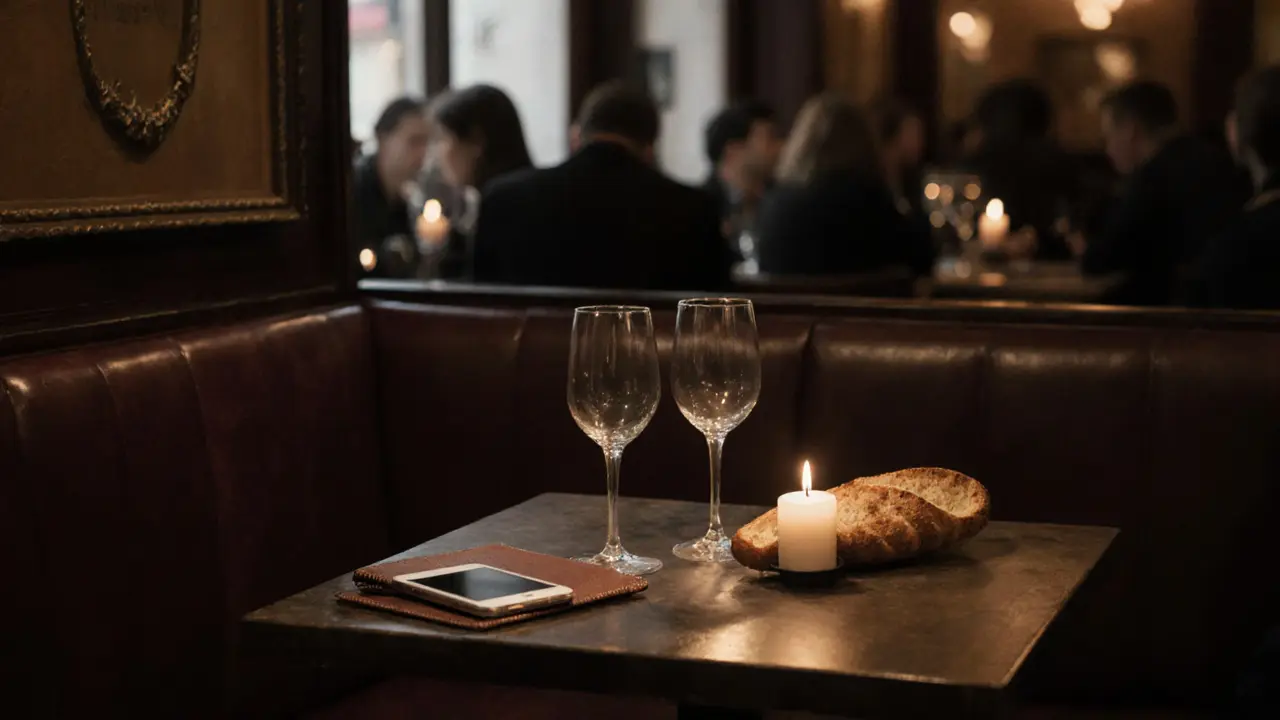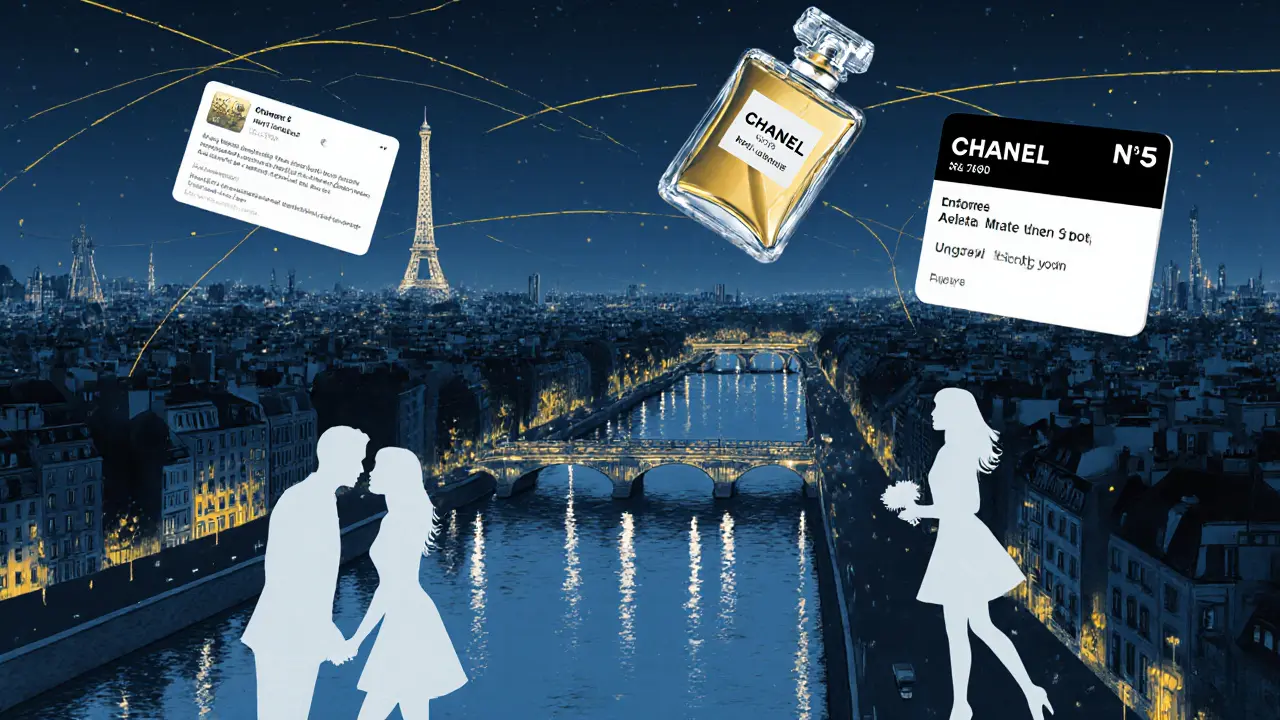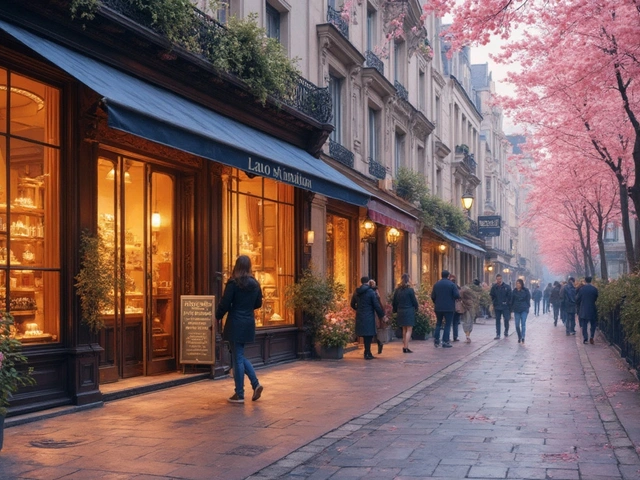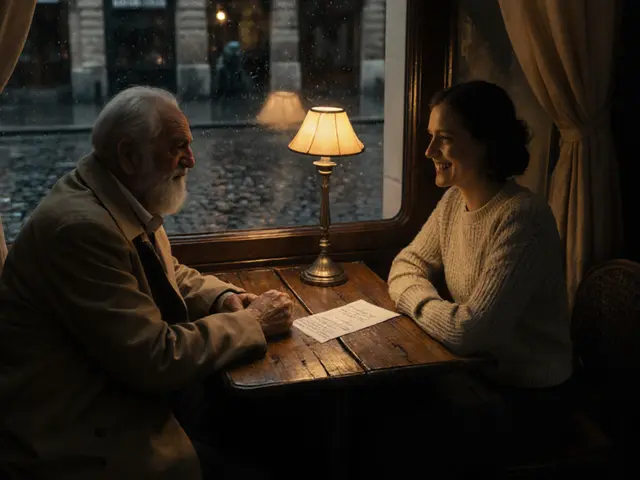The Rise of Infidelity Dating in Paris: How Secret Relationships Are Shaping the City’s Hidden Social Scene

In Paris, where cafés hum with whispered conversations and the Seine reflects more than just city lights, infidelity dating isn’t just a trend-it’s a quiet, well-oiled machine woven into the rhythm of daily life. You’ll find it in the shadowed corners of Le Comptoir Général, in the late-night texts exchanged after a bottle of Burgundy at L’Avant Comptoir, and in the unspoken glances between colleagues who meet for lunch at Marché des Enfants Rouges and never mention their spouses. This isn’t about rebellion. It’s about space-space to breathe, to feel desired, to escape the weight of expectations that come with long-term relationships in a city where romance is both sacred and performative.
Why Paris? The Cultural Pressure Cooker
Parisians don’t date to find love. They date to feel alive. The city thrives on aesthetic intimacy: candlelit dinners at Le Jules Verne, strolls along the Canal Saint-Martin, buying fresh baguettes side by side while pretending you’re not watching the other person’s hands. But over time, that performance becomes exhausting. Marriage in Paris often means shared tax returns, children in écoles publiques, and weekend trips to the Loire Valley-all of which feel more like duties than delights. When the spark fades, many don’t leave. They look elsewhere.Unlike in cities where infidelity is hidden behind closed doors, in Paris it’s often disguised as friendship. A woman might meet her lover for wine at La Cave des Abbesses because “she’s helping him choose a gift for his wife.” A man might take his mistress to the Musée d’Orsay on a Tuesday afternoon, claiming it’s a “work meeting.” The French have long tolerated duality. Think of the literary tradition: Colette, Sartre, de Beauvoir-all lived open secrets. Today, it’s not about scandal. It’s about discretion.
The Tools of the Trade: Apps and Safe Spaces
You won’t find Tinder or Bumble used much for affairs here. Too public. Too traceable. Instead, Parisians rely on niche platforms like infidelity dating Paris services such as Ashley Madison (still active here), or local apps like Secrets and Amour Cache, both designed with encrypted messaging and geofenced meeting zones. These apps let users set filters like “15-minute walk from Gare du Nord” or “no photos of children visible.” One user told me he meets his partner every Thursday at 7 p.m. in the back booth of Le Comptoir du Relais, a spot so common among discreet couples that the staff no longer asks for names.Hotels play a crucial role. The Hôtel Le Bristol, Hôtel Plaza Athénée, and even the more modest Hôtel du Vieux Colombier offer “privacy packages”-rooms booked under fake names, no receipts, no housekeeping during the stay. Some concierges know who’s who. One told a journalist (off the record) that he’s arranged over 200 “business stays” for the same woman in the last three years. She always orders champagne, never eats breakfast, and leaves before 10 a.m.
Where It Happens: The Hidden Geography of Parisian Affairs
Certain neighborhoods are unofficial hubs. The 6th arrondissement, between Saint-Germain-des-Prés and the Luxembourg Gardens, is ground zero. The cafés here are quiet, the streets narrow, and the residents-writers, artists, lawyers-have the means and the mindset to keep secrets. In the 16th, near Avenue Foch, you’ll find more affluent couples using private apartments rented through Airbnb under aliases. One listing, hidden under “Studio Jardin,” is booked exclusively for 2-3 hours at a time by the same couple every Friday.Even public spaces are repurposed. The Promenade Plantée, the elevated park above the Viaduc des Arts, is a favorite for lunchtime rendezvous. No one sees you from below. The Jardin du Palais-Royal, with its colonnades and hidden benches, is used for quick kisses between 1 p.m. and 2 p.m., when the crowds thin. And then there’s the Paris Métro. Line 13, between Porte de Saint-Cloud and Champs-Élysées-Clemenceau, is infamous. A local blogger, writing anonymously under “Paris Sans Regrets,” mapped over 40 “meet points” on the metro where couples exchange notes, flowers, or keys to apartments.

Why It Works: The French Code of Discretion
What makes infidelity dating in Paris so persistent isn’t just opportunity-it’s culture. The French don’t shame. They ignore. If you’re caught, you don’t apologize. You change your routine. You stop going to the same bakery. You switch your usual café. You stop wearing that perfume. The unspoken rule? Don’t make it messy. Don’t involve the kids. Don’t talk about it. Don’t let your partner find out through a receipt or a photo.There’s also a financial layer. Many affairs are funded through discreet cash payments, gift cards from Galeries Lafayette, or even cryptocurrency transfers through wallets labeled “art purchase” or “book subscription.” One woman I spoke with admitted she uses her husband’s credit card to pay for her lover’s weekend at Château de la Napoule-then files it under “home renovation.”
The Human Cost: When Secrets Become Chains
But this system isn’t without its toll. The emotional labor of maintaining two lives is exhausting. Many people I spoke with described a constant state of hyper-awareness: checking phones before answering calls, avoiding group photos, memorizing schedules so they don’t overlap. One man, a 48-year-old architect in the 7th, said he hasn’t slept through the night in five years. He wakes up at 4 a.m. every day to check his burner phone before his wife stirs.Therapy is growing in popularity-not to end affairs, but to manage them. Paris has a cluster of therapists specializing in “relationship complexity,” many of whom operate out of private offices near Place des Vosges. They don’t ask if you’re cheating. They ask how you’re surviving it.

What’s Changing? The New Generation
Younger Parisians-those under 35-are rethinking the old rules. Many reject the idea that love must be confined to one person. Open relationships, polyamory, and ethical non-monogamy are gaining ground, especially among expats and creatives in the 10th and 11th arrondissements. Cafés like La Belle Hortense and Le Baratin host monthly “open conversations” about modern love. One event last month drew over 200 people, mostly under 30. They didn’t come to gossip. They came to plan.Some are even turning to AI. Apps like Émotion use behavioral analysis to help users manage multiple relationships-tracking moods, reminding them of anniversaries, even suggesting when to say “I love you” to avoid emotional overlap. It sounds cold. But in a city where emotions are often buried under layers of elegance, it’s practical.
Is This Really Paris? Or Just a Myth?
Yes, Paris has a reputation for romance. But the truth is, it’s a city where romance has become a performance-and performance requires an audience. Infidelity dating here isn’t about lust. It’s about identity. It’s about reclaiming a part of yourself that marriage, children, or social pressure buried. It’s about finding someone who sees you not as a spouse, a parent, a professional-but as a person who still wants to be surprised.So if you walk past a couple holding hands near the Pont Alexandre III and notice their rings don’t match, don’t assume the worst. Maybe they’re just two people who found a way to stay alive in a city that demands beauty, even when it hurts.
Is infidelity dating common in Paris compared to other cities?
Yes, it’s more normalized here than in many other Western cities. France has long had a cultural tolerance for emotional and sexual duality, dating back to Enlightenment thinkers and reinforced by modern social norms. Unlike in the U.S. or UK, where affairs often lead to public scandals, Parisians prioritize discretion over drama. Surveys by INSEE and private French research firms suggest that nearly 30% of married Parisians have had at least one affair in the past five years-higher than the European average of 21%.
Are there legal consequences for infidelity in France?
No. France abolished adultery as a criminal offense in 1975. Today, it’s purely a civil matter in divorce proceedings. Even then, courts rarely punish infidelity unless it involves financial fraud-like spending joint funds on gifts or hotel stays. Most divorces here are based on “irreconcilable differences,” making proof of cheating unnecessary. The real consequence isn’t legal-it’s social. Being known as someone who’s careless with secrets can damage your reputation in tight-knit circles like the 6th or 16th arrondissements.
What are the safest places in Paris for discreet meetings?
Some of the safest spots include the back booths at Le Comptoir du Relais (6th), the private garden terrace at Hôtel du Vieux Colombier (6th), the Promenade Plantée (12th), and the rooftop bar at Le Perchoir (11th). These places are popular, so they’re less likely to raise suspicion. Avoid tourist-heavy zones like Montmartre or the Eiffel Tower at night. Also, use apps that auto-delete messages and avoid using your real name on hotel bookings. Many Parisians use Airbnb’s “business stay” option under aliases, which is legally permitted if the stay is under 30 days.
Do expats participate in infidelity dating in Paris?
Yes, and they often lead the trend. Many expats-especially those from conservative countries-come to Paris seeking freedom from judgment. English-speaking therapists in Paris report that nearly 40% of their clients are foreign nationals. Expats are also more likely to use encrypted apps and avoid local social circles where gossip spreads fast. They’re drawn to the city’s reputation for tolerance, but sometimes don’t realize how deeply discretion is ingrained in French culture. They’re not breaking rules-they’re learning them.
How do Parisians handle jealousy in secret relationships?
Jealousy is rarely expressed openly. Instead, it’s managed through silence, distance, or subtle control. A partner might start coming home later, canceling plans, or buying new perfume. In rare cases, people will hire private investigators-especially if children are involved. But most avoid confrontation. The French believe that if something needs to be said, it should be said with elegance, not anger. That’s why therapy is so common. It’s not about ending the affair. It’s about making sure it doesn’t end you.





